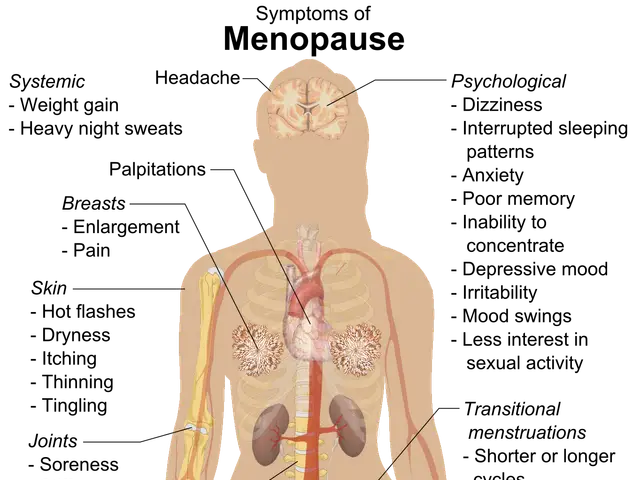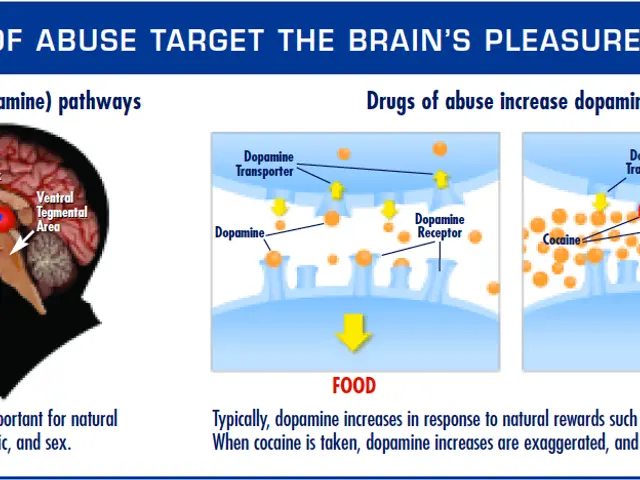Nexletol Administration: Details on forms, potencies, usage methods, and related information
Nexletol, a cholesterol-lowering medication, is approved by the FDA for lowering low-density lipoprotein cholesterol (LDL-C) and reducing the risk of myocardial infarction (heart attack) and the need for coronary revascularization procedures in adults with established cardiovascular disease or at high risk for such events, especially those who cannot take recommended statin therapy.
The recommended dosage for this use is one tablet (180 mg) of Nexletol, taken orally once per day, with or without food. It's important to note that Nexletol can be taken at any time of the day.
If a dose is missed, it should be taken as soon as possible without doubling the next dose. Treatment effects on lipid levels should be monitored after starting therapy, typically within 8 to 12 weeks.
Potential consequences of an overdose with Nexletol are not specifically described in the available prescribing information. However, common adverse reactions from standard dosing include hyperuricemia (elevated uric acid), muscle spasms, back pain, anemia, elevated liver enzymes, and an increased risk of tendon rupture. In case of overdose, supportive care and monitoring would likely be implemented, and contact with a healthcare provider or poison control center is advised.
Nexletol is contraindicated in patients with a history of serious hypersensitivity to bempedoic acid or its excipients.
To help ensure that you don't miss a dose, you can use a medication reminder, such as setting an alarm or putting a note where you'll see it. If you have difficulty opening medication bottles, ask your pharmacist about putting Nexletol in an easy-open container. Some pharmacies offer labels with large print, braille, or a code you scan with a smartphone to convert text to speech.
This information is based on FDA-approved labeling and prescribing information. Nexletol is prescribed for adults who can't take or haven't taken a statin and have risk factors such as a history of cardiovascular disease or high risk of heart attack, stroke, or another cardiovascular event but without having cardiovascular disease yet. Nexletol is meant to be a long-term treatment.
- Hypertension patients might benefit from considering Nexletol, as its primary use is for adults with established cardiovascular disease or high risk of such events.
- In managing chronic diseases like hypertension and cardiovascular health, it's crucial to follow medical-condition-specific guidelines, including taking prescribed therapies and treatments like Nexletol.
- For individuals with chronic diseases or multiple medical conditions, maintaining a balanced diet and regular fitness-and-exercise routine can play a pivotal role in overall health-and-wellness.
- Science and research continue to evolve, leading to innovative treatments and advancements, such as the cholesterol-lowering medication Nexletol, which is designed to reduce the risk of heart attacks and cardiovascular-related procedures.
- Various decision-makers, including healthcare professionals and Medicaid plan deciders, assess the benefits of introducing new drugs like Nexletol into medicare coverage to enhance patient care and outcomes for those struggling with chronic diseases.
- It's essential to consider long-term strategies for managing medical conditions and achieving better health outcomes, such as adhering to dietary guidelines, exercising regularly, and taking recommended therapies and treatments like Nexletol consistently.





